Combat dry, red, itchy skin with these real foods that naturally soothe eczema.
If you suffer from eczema, you know just how uncomfortable this condition can be. Over 31 million Americans have this skin disorder which can be caused by immune reactions, allergies, irritants, or genetics. (1) Children are also prone to eczema, and the problem can start as early as infancy.
Here’s how to eat to help calm your (or your child’s) symptoms – and what to avoid.
Want naturally radiant skin? We’ve created a FREE guide to give you the best tips & tricks for natural skincare.
Click here to get your FREE copy of our Skincare Guide!
What is Eczema?
The word “eczema” comes from a Greek word that means “to boil over”. Eczema can describe a group of different conditions that cause redness, inflammation, and itchy skin. (2)
The different types of eczema include:
- Atopic Dermatitis: The most common form of eczema, this extremely itchy rash is caused by skin barrier issues or a malfunctioning immune system. (3, 4)
- Contact Dermatitis: Brought on by contact with an environmental irritant or allergen, like laundry detergent, perfume, or household cleaners.
- Dyshidrotic Eczema: Usually caused by contact with an allergen, this type of eczema presents itself as blisters on the hands and feet. (5)
- Stasis Dermatitis: Generally occurring in older adults, stasis dermatitis happens when poor leg circulation causes the veins in the legs to swell, leading to irritation and itchy skin.
- Nummular Eczema: Caused by dry skin or exposure to an allergen, this type of eczema shows as round lesions on the skin.
- Seborrheic Dermatitis: Greasy white or yellow patches on the skin caused by hormonal changes, genes, or bacteria. (6)
How to Know You are Suffering from Eczema
If you suffer from eczema, you are likely to have one or more of these common symptoms: (7)
- Red skin
- Itchy skin
- Dry skin
- Swollen areas on the skin
- Crusting skin that may ooze
- Scaly patches
- Darkened patchy areas on the skin
The Top 8 Foods to Ease Eczema
Fortunately, diet can play a huge role in helping you gain better control over eczema. Since it is an inflammatory condition, adopting an anti-inflammatory diet can be very helpful.
These natural foods can help reduce inflammation, ease itchy skin, and other frustrating eczema symptoms.
1. Fatty Fish
Fatty fish like wild-caught salmon, mackerel, herring, and sardines are rich in omega-3 fatty acids that reduce inflammation and support skin health. EPA is a particular omega-3 fatty acid that can help improve eczema symptoms by reducing leukotriene B4, which is produced by an inflammatory response in the body and is thought to play a role in eczema symptoms. (8)
To help reduce inflammation and support skin health, aim for two (3.5-ounce) servings of fatty fish per week. Try pairing wild-caught salmon with cauliflower rice, or making a salmon burger served with avocado and sauerkraut.
Note: While fish can be great for skin health for some, it may be a trigger for others. If you have a known fish allergy or sensitivity, steer clear.
2. Berries
Berries are rich in flavonoids which can be helpful for reducing inflammation, while strengthening connective tissue to support eczema prone skin. (9)
Try adding strawberries, blueberries, or raspberries to your smoothies, or over coconut yogurt with a drizzle of raw honey and a handful of nuts or seeds.
3. Probiotic-rich Foods
Fermented foods like sauerkraut, kimchi, and kombucha are filled with probiotics that help boost the immune system, and can help control allergies, a huge trigger of childhood eczema. (10) Pregnant and breastfeeding women can also take probiotics to reduce the likelihood of childhood eczema in their babies. (11)
If you don’t get enough probiotic-rich foods in your diet, you can add a high-quality probiotic to your supplement routine. Some excellent brand options include Klaire Labs Probiotics, which are hypoallergenic, and Megasporebiotic.
4. Coconut Oil
Since coconut oil holds strong antibacterial and antifungal properties, it can reduce eczema caused by staph bacteria on the skin. (12)
Use coconut oil as a moisturizer to soothe irritated skin and add it into your diet to boost the immune system and reduce inflammation. Try adding a tablespoon of coconut oil to smoothies, drizzle melted coconut oil over steamed vegetables, and use it in place of butter in your favorite baking recipes.

5. Pineapple
Pineapple is rich in bromelain, an enzyme that reduces inflammation. (13) When applied as a cream, bromelain can help heal skin damaged by eczema. (14)
Enjoy pineapple blended up in a smoothie, or diced over a bowl of full-fat unsweetened coconut milk yogurt. You can also make fresh pineapple juice with some added ginger or turmeric for an added anti-inflammatory punch.
6. Manuka Honey
Like coconut oil, honey is amazing for eczema and can be used topically. Manuka honey, in particular, contains antibacterial properties to help combat skin infections like staph that can trigger eczema. A study found that the use of manuka honey helps heal lesions in patients with atopic dermatitis. (15)
Manuka honey can be used directly on the skin or mixed into a cup of tea, blended into a smoothie, drizzled over berries, or enjoyed straight off the spoon.
7. Bone Broth
Bone broth is excellent for gut health, and healing the gut is central to reducing eczema as it plays a large role in the immune system. Studies show that dysbiosis, which is an imbalance in the bacteria in the gut, can lead to atopic dermatitis. (16)
To help support the gut, try sipping on some bone broth each day, or using it as a base for homemade soup.
8. Vegetables
Eating lots of veggies reduces inflammation, a key part of getting eczema symptoms under control. There are also certain vegetables rich in prebiotics that help feed the healthy bacteria in the gut, which is especially beneficial to those with allergies. Studies show that the combination of pre- and probiotics served as a promising natural treatment option for atopic dermatitis. (17)
Add a healthy dose of prebiotics to your diet by consuming vegetables such as:
- Dandelion greens
- Asparagus
- Leeks
- Jerusalem artichokes
Blend your greens into a smoothie, or make it a goal to enjoy a fresh salad or veggie dish every day.
Eczema Trigger Foods
There are a number of foods those suffering from eczema may want to avoid, and they happen to be common allergens as well. Food allergies and atopic dermatitis go hand in hand, as it’s estimated that children with food allergies are particularly at risk for atopic dermatitis. In fact, one-third of children with atopic dermatitis also have food allergies. (18)
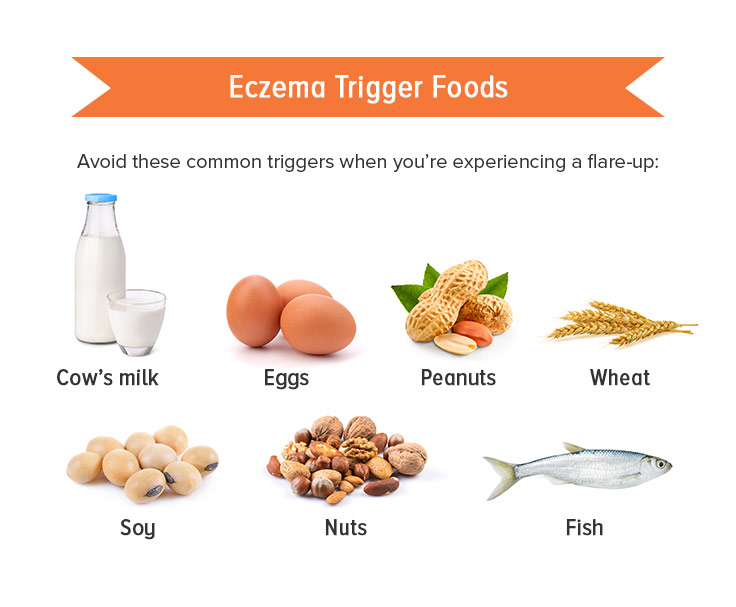
The following foods are estimated to be responsible for about 90% of food allergies in children with atopic dermatitis:
- Cow’s milk
- Eggs
- Peanuts
- Wheat
- Soy
- Nuts
- Fish
Try eliminating these foods from your diet, to see if your symptoms improve.
Other Tips to Combating Eczema
In addition to choosing foods to help reduce eczema, and eliminating the potential allergens, here are other tips you can implement to help combat symptoms.
Here are five non-dietary tips to help treat your eczema symptoms.
1. Reduce Stress
Stress is a big eczema trigger. Strive to find ways to reduce your stress each day by meditating, practicing yoga, getting fresh air, and making time to do the things you love.
2. Avoid Environmental Irritants
Since environmental irritants are common eczema triggers, it’s important to avoid things like perfume, harsh cleaning products, and scented laundry detergent. Even if you choose an unscented dish detergent, you may even want to wear dishwashing gloves to avoid contact with harsh soap. The less you can expose your skin to, the better.
3. Uncover Potential Food Sensitivities
Since food allergies and sensitivities are big eczema triggers, you may want to consider getting tested for underlying food sensitivities. There are many at-home tests like Everlywell that you can order to uncover if a food sensitivity is causing your symptoms.
4. Try an Anti-Inflammatory Diet
Adopting an anti-inflammatory food plan is a great way to eliminate some of the common eczema trigger foods like gluten, dairy, and soy. Following a Paleo diet also means that you will eliminate food colorings, additives, and artificial ingredients from your diet which can also help support skin health. (19) It’s just one more reason to keep food additives out of your diet!
The Bottom Line
Eczema is an extremely uncomfortable condition that can interfere with the overall quality of your life. While it can be a chronic condition, there are many things you can do to help control your symptoms. If you suffer from eczema, try to uncover potential triggers by getting tested for food sensitivities, staying away from dietary and environmental irritants, and following an anti-inflammatory diet. These lifestyle changes may be just what you need to help gain better control over your eczema symptoms.
(Get More Skin Health Tips: 8 Natural Foods That Moisturize Your Skin From the Inside Out)


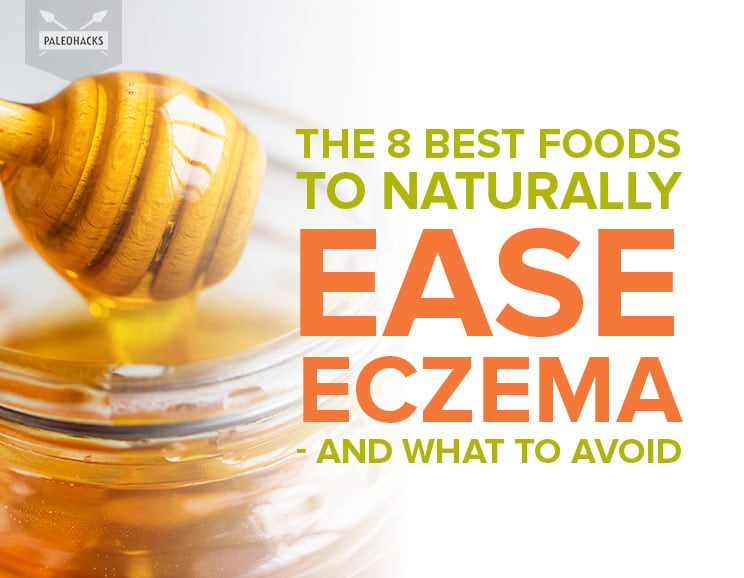
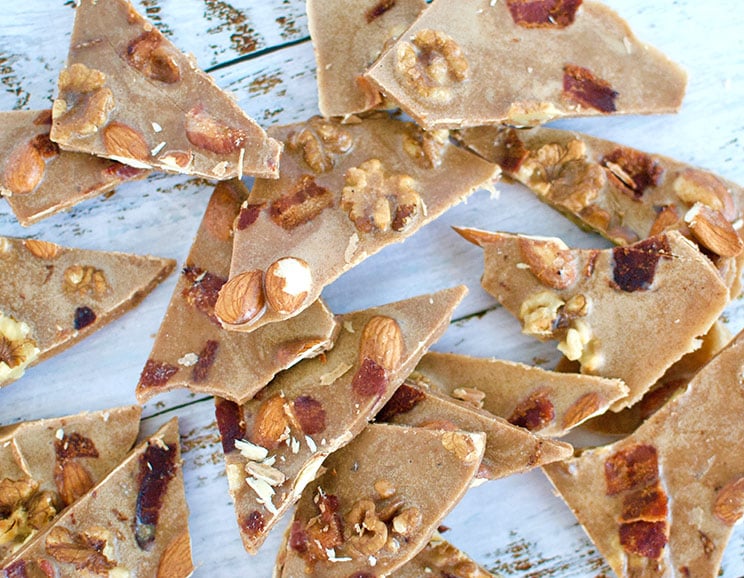 Almond Butter Nut Bacon Brittle
Almond Butter Nut Bacon Brittle
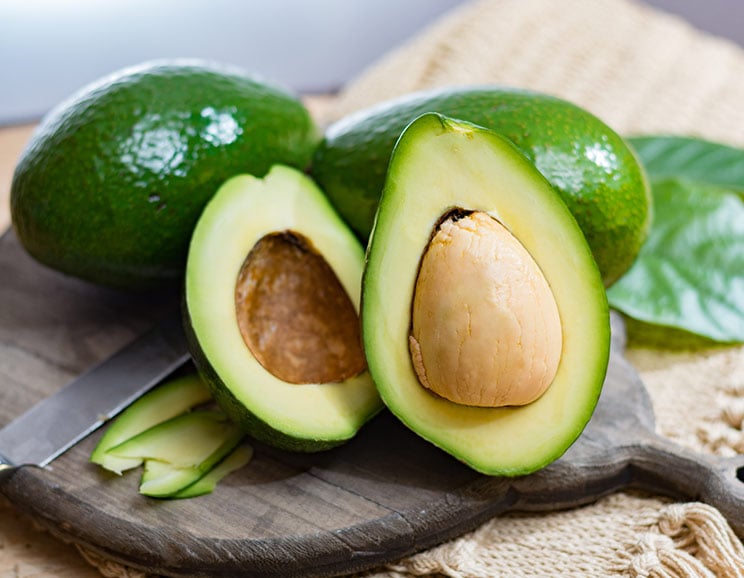

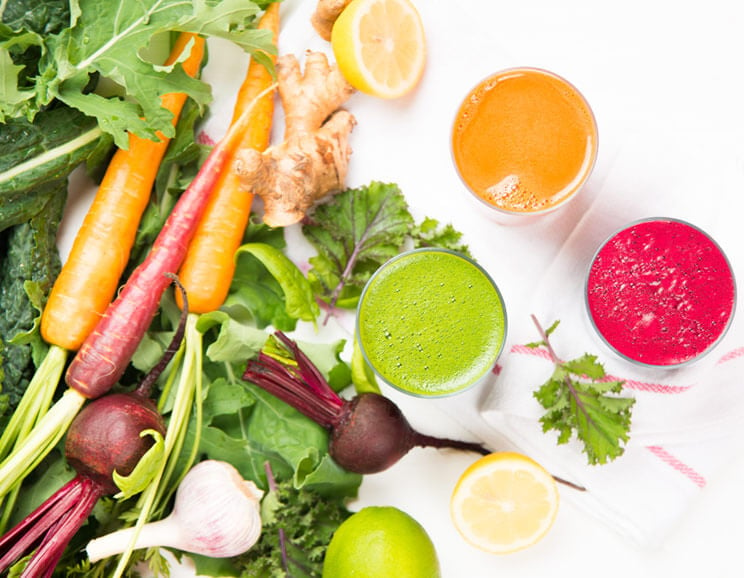





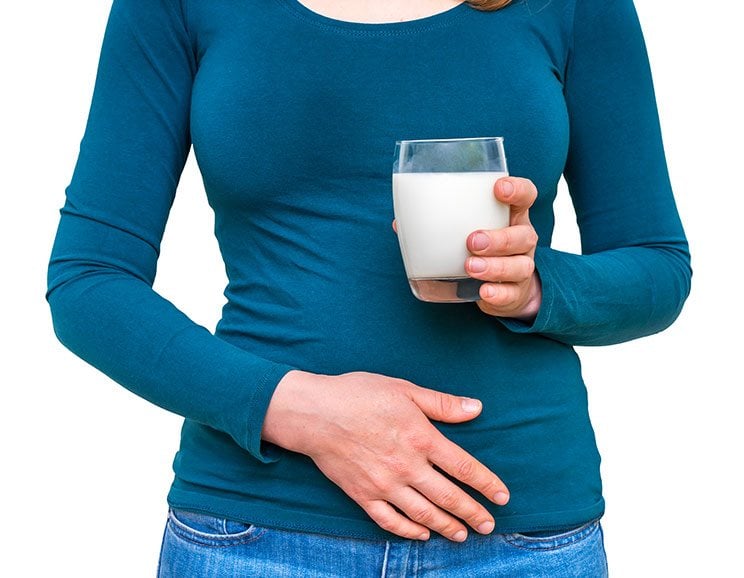
Show Comments